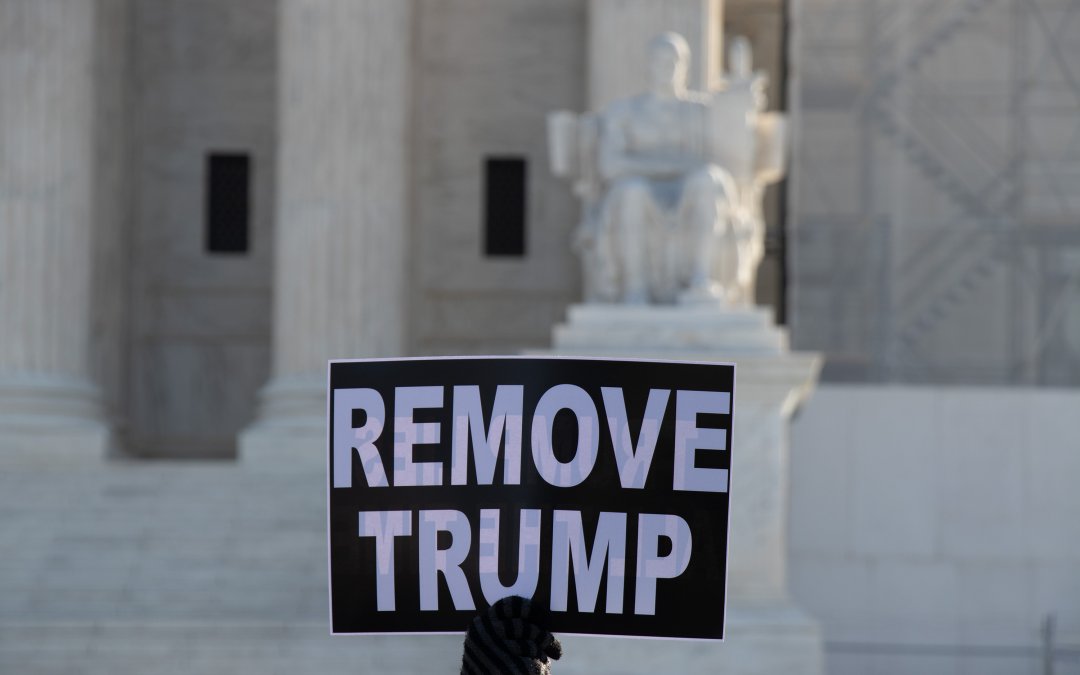WASHINGTON – The Supreme Court heard oral arguments on Thursday for the Trump v. Anderson case to decide whether Donald Trump “engaged in insurrection” deeming him ineligible to be on Colorado’s primary ballot.
The arguments lasted about two hours with little mention of Trump’s role in the attack on the U.S. Capitol on Jan. 6, 2021, which turned violent and deadly.
Jonathan Mitchell, an attorney for Trump, began by saying the Colorado Supreme Court’s decision to keep Trump off the ballot was “wrong and should be reversed for numerous, independent reasons.”
Justice Clarence Thomas asked Mitchell whether Section 3 of the 14th Amendment is self-executing or if Congress needed to create legislation to enforce it.
“It is entirely up to Congress,” Mitchell responded.
Mitchell argued that Section 3 only prohibits a person from holding office but not from appearing on the ballot.
The justices expressed concern over whether it would be left up to the states when questioning both the lawyers representing Colorado voters and Trump’s legal team.
A great deal of Trump’s case hinges on whether the justices agree that the president is not an “officer of the United States.”
The 14th Amendment disqualifies any person who took an oath, “as an officer of the United States…to support the Constitution” from “hold[ing] any office… under the United States.”
His legal team said that since Trump did not hold a prior office that required him to swear an oath of support to the Constitution, the disqualification does not apply to him.
Justice Sonia Sotomayor pressured Mitchell about his understanding of Section 3.
“A bit of a gerrymandered rule, isn’t it, designed to benefit only your client?”
“This case does not come down to mere prepositions,” said Jason Murray, attorney for the Colorado voters, about the Trump legal team’s interpretation of the 14th Amendment.
As the nine justices questioned Murray, some showed signs that they would side with Trump, including Chief Justice John Roberts, who said, “the whole point of the 14th Amendment was to restrict state power.”
Justine Ketanji Brown Jackson put pressure on Murray by circling back to the fact that the 14th Amendment does not list the president.
“The fact that electors of vice president and president are there suggests that really what they thought was if we’re worried about the charismatic person, we’re going to bar insurrectionist electors and, therefore, that person is never going to rise?” Jackson questioned.
As it continued, the justices’ concerns about states having different ballots and the implications this would have on future elections became clear.
“I would expect that, you know, a goodly number of states will say whoever the Democratic candidate is, you’re off the ballot. And others for the Republican candidate, you’re off the ballot,” said Roberts.
All of the justices asked hard questions to both attorneys.
This is the first case involving Section 3 to come before the Supreme Court.
“Those novel arguments in some ways are kind of splashing paint on a wall and hoping that it is able to stick,” said Dr. Michele Goodwin, a Constitutional Law professor at Georgetown Law.
In September, four Republican and two independent voters in Colorado filed a lawsuit to keep Trump off the primary ballot. Following a five-day trial, District Judge Sarah B. Wallace found that Trump had engaged in an insurrection but Section 3 didn’t apply to the presidency.
On Dec. 19, the Colorado Supreme Court reversed the decision, concluding that the presidency is included in Section 3, disqualifying him from holding the Office of President.
Goodwin explained that Section 3 was created to hold the nation together after the Civil War.
“If one is interpreting the 14th Amendment, Section 3, in an originalist way, those members of Congress that were constructing a new constitution, a reconstructed constitution, were deeply concerned about insurrectionists.”
How the Supreme Court ultimately rules affects more than just Colorado’s primary. Maine’s secretary of state concluded that Trump should not appear on its primary ballot, but the decision is on hold until the Supreme Court’s ruling.
Lawyers for both sides have asked the Court to rule quickly, before Super Tuesday on March 15.


